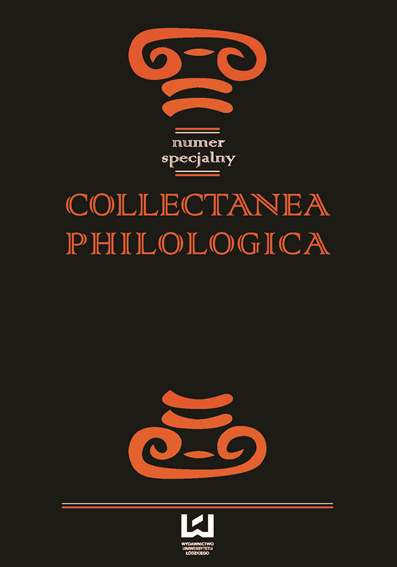Atlantyda jako mit nie-grecki, czyli o mitach w kulturze popularnej
DOI:
https://doi.org/10.18778/1733-0319.S15.01Słowa kluczowe:
mythology, popular culture, video gamesAbstrakt
The article focuses on the issue of reception of ancient myths in popular culture. As popular culture is known for vast use of different ancient myths in many productions, the question may be raised, if they can be still named as ‘ancient’. With the example of the drowned peninsula of Orr in Guild Wars video games, which is compared with the Atlantis isle of Plato, the article proves that despite structural similarity of the story, these two are different myths. The myth of Atlantis is shaped by the Greek culture, which is oriented on the past, with strong conviction that the human race is heading towards destruction. The story of Orr reflects immersion in present time and the need to bury the past once and forever. Therefore, popular culture creates its own mythology, which is named as the mythology of popular culture.Pobrania
Opublikowane
2015-01-01
Jak cytować
Czarcińska, K. (2015). Atlantyda jako mit nie-grecki, czyli o mitach w kulturze popularnej. Collectanea Philologica, 5–13. https://doi.org/10.18778/1733-0319.S15.01
Numer
Dział
Articles
Licencja

Utwór dostępny jest na licencji Creative Commons Uznanie autorstwa – Użycie niekomercyjne – Bez utworów zależnych 4.0 Międzynarodowe.












